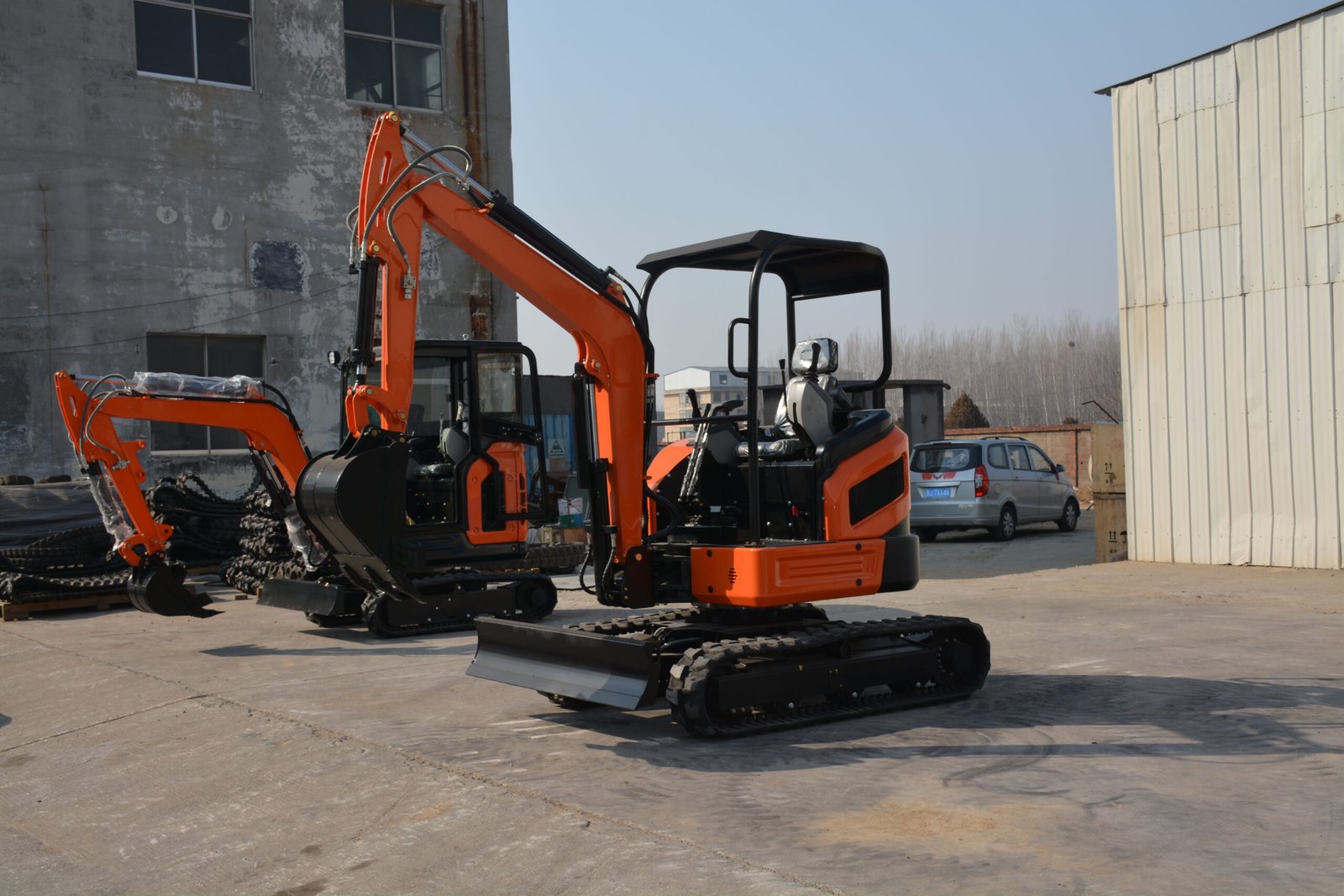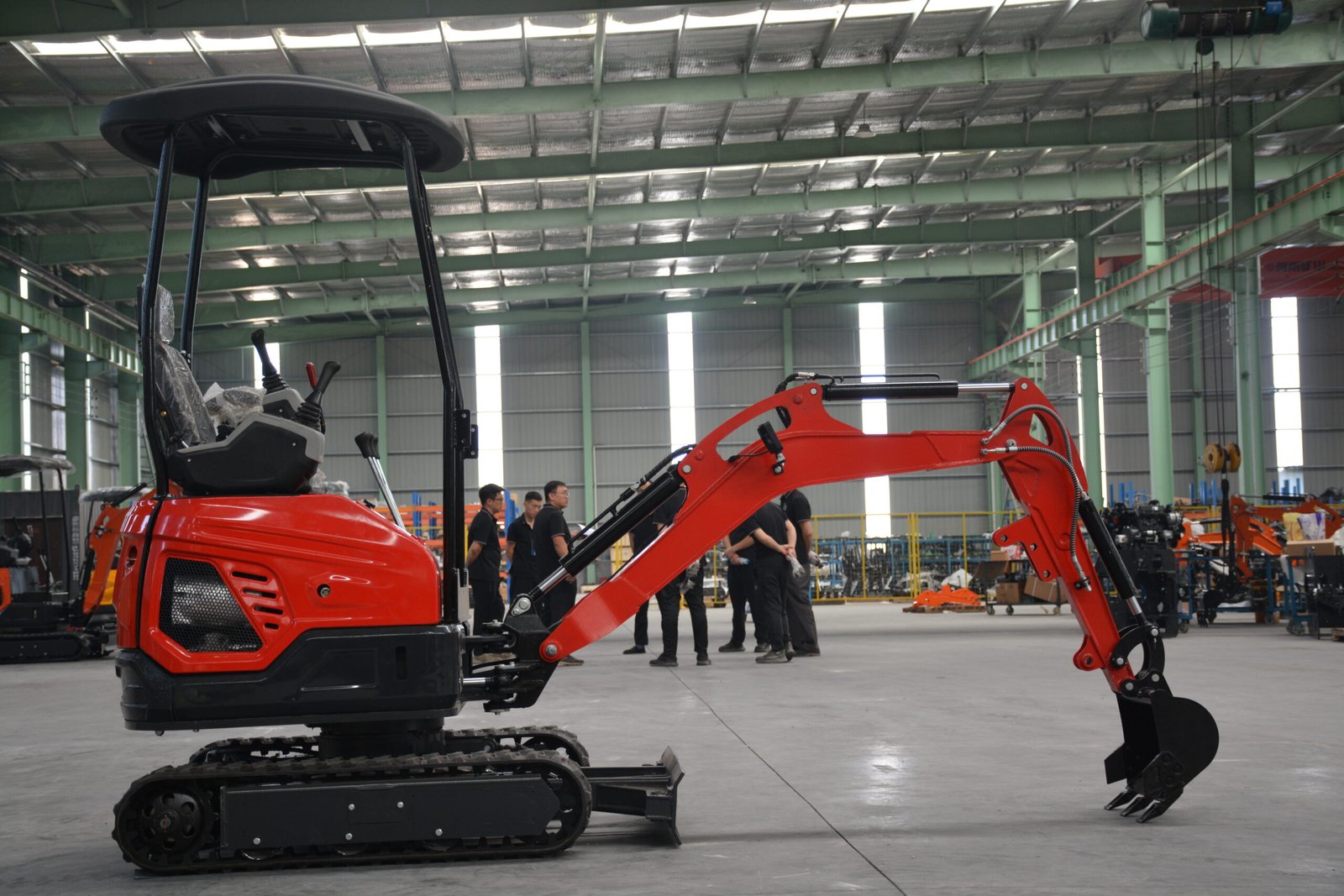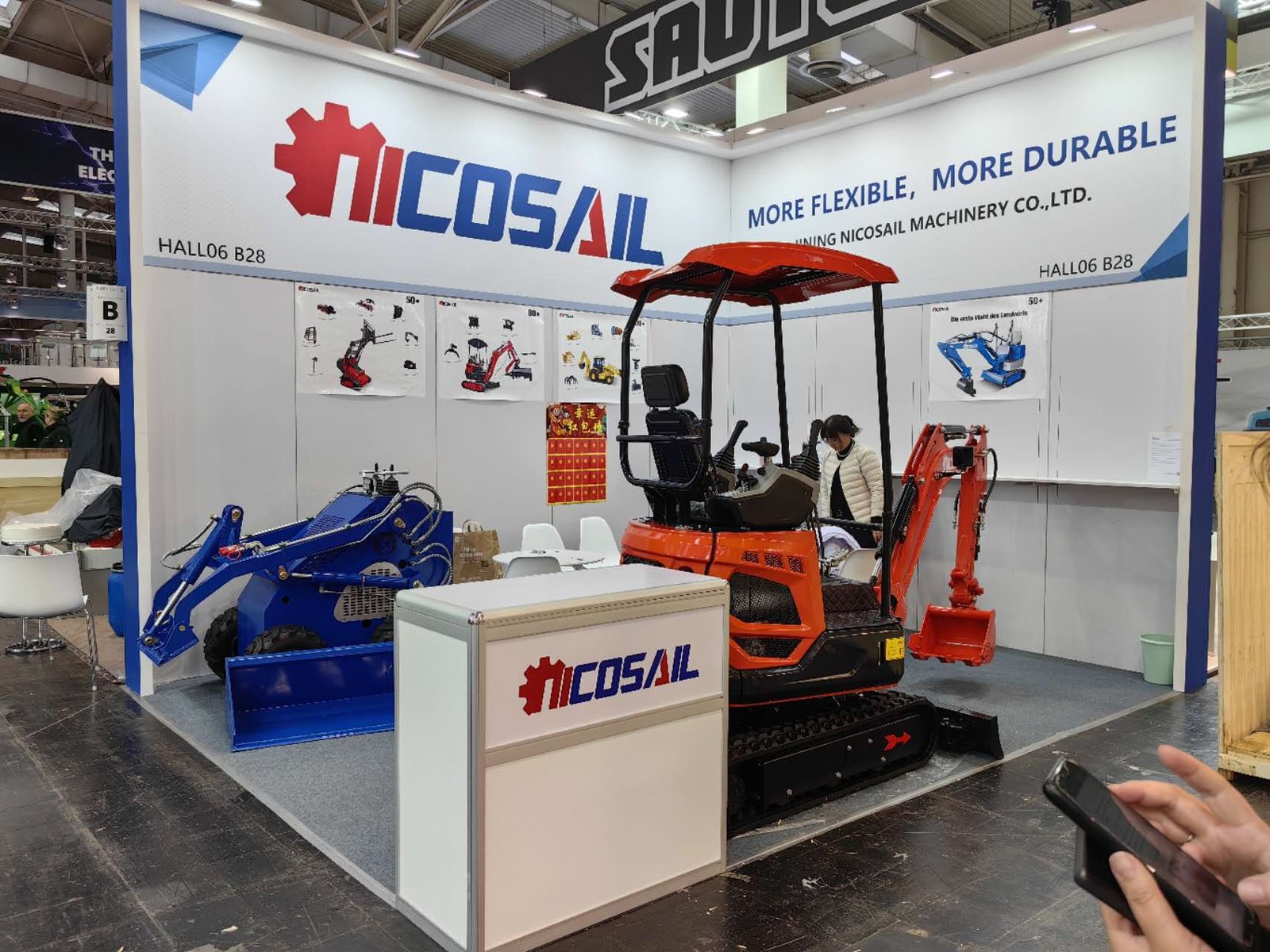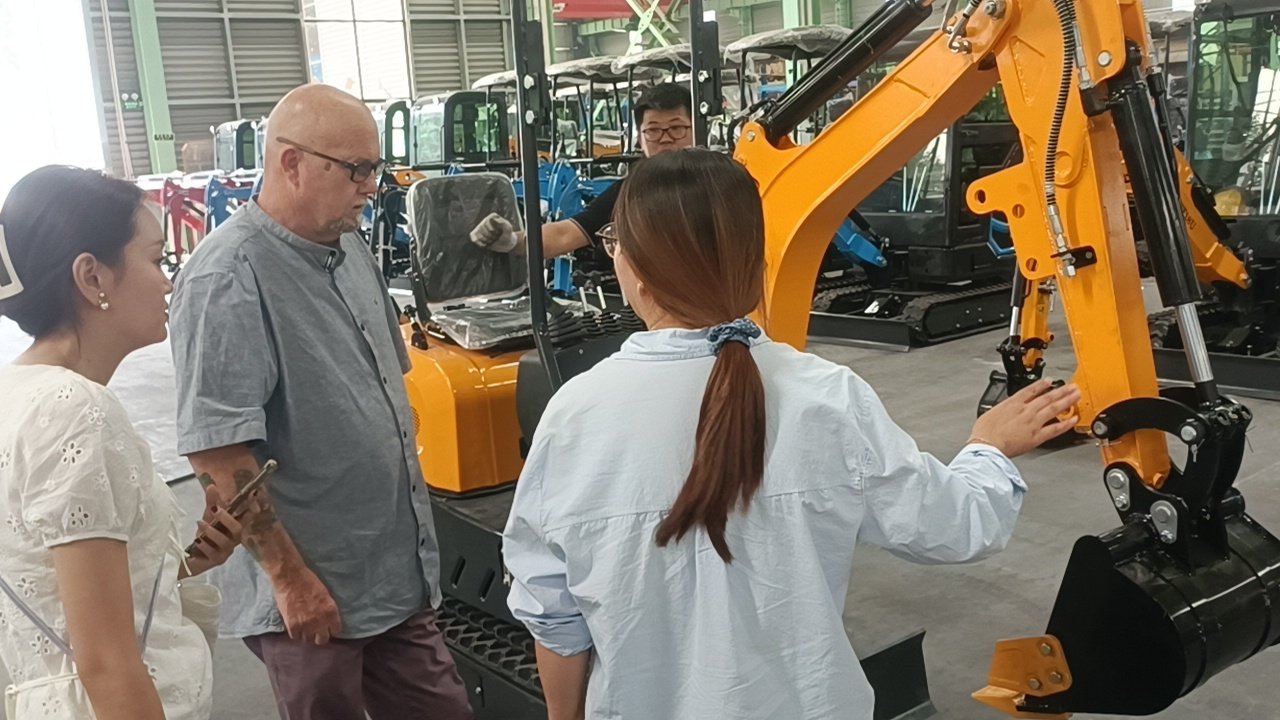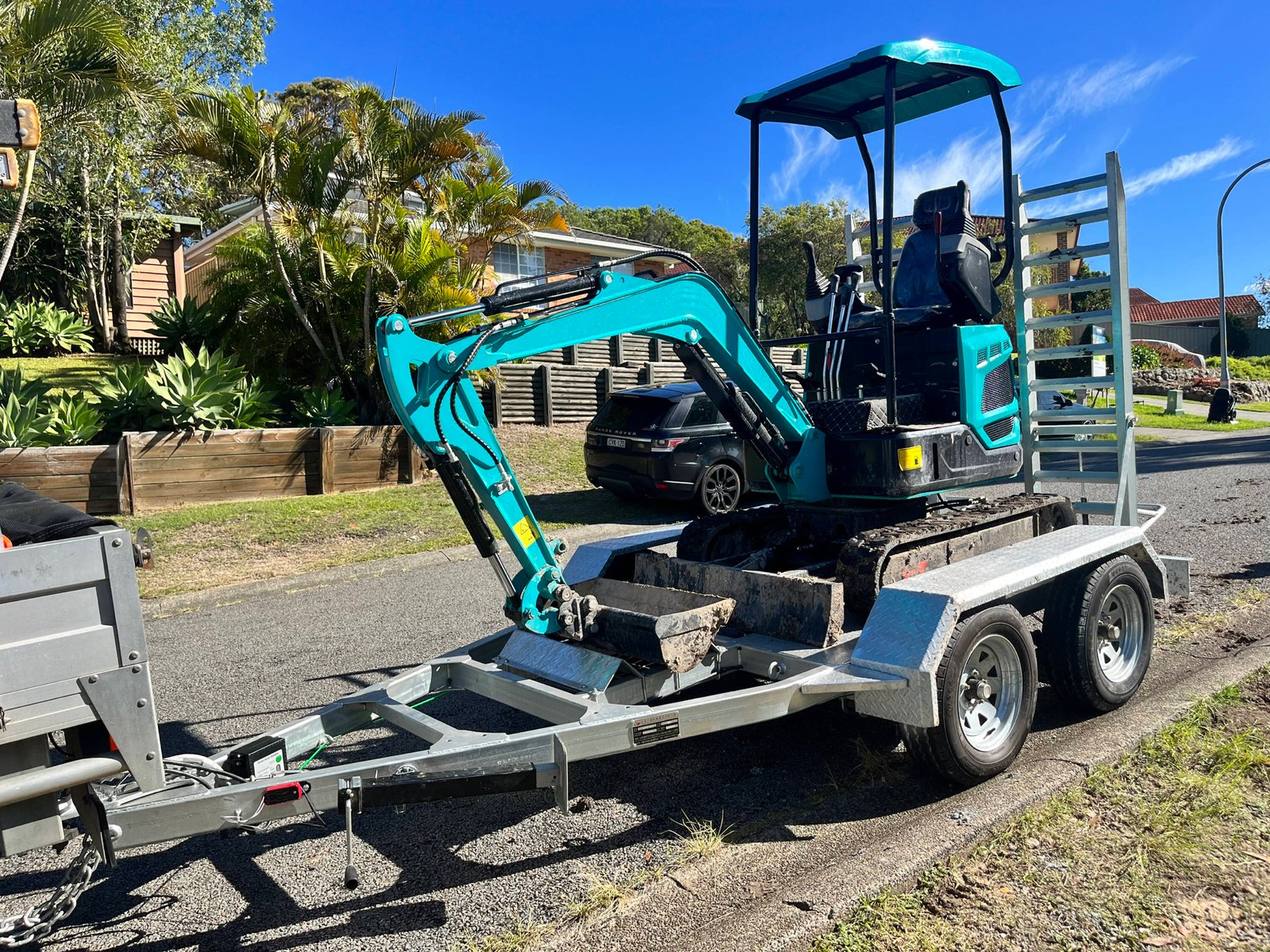Introduction: A Growing Market with New Opportunities
The global construction machinery market has undergone a quiet but significant transformation in recent years. As large-scale infrastructure projects coexist with a growing number of small and medium-sized construction and landscaping businesses, the demand for mini excavators has seen steady and consistent growth.
From residential landscaping in the United Kingdom, to farm maintenance in France, to small-scale building projects across North America and Australia, mini excavators have become indispensable tools. Their compact size, versatility, and cost-efficiency make them ideal for both professionals and private users who require strong performance without the bulk or price tag of full-size machines.
With this demand surge, more and more distributors and dealers are looking to source reliable and affordable equipment — and naturally, their eyes turn to China, where manufacturing capabilities, technology adoption, and quality standards have evolved rapidly over the past decade.
But for every reputable manufacturer, there are many more who fail to meet international expectations in terms of quality, service, or consistency. For dealers seeking to build long-term business relationships, choosing the right Chinese supplier is a strategic decision — not a short-term transaction.
This article offers a practical framework for evaluating Chinese mini excavator manufacturers, drawing from industry insights, field experiences, and examples from established players like Nicosail, a company known for its consistent export performance and commitment to dealer partnerships.
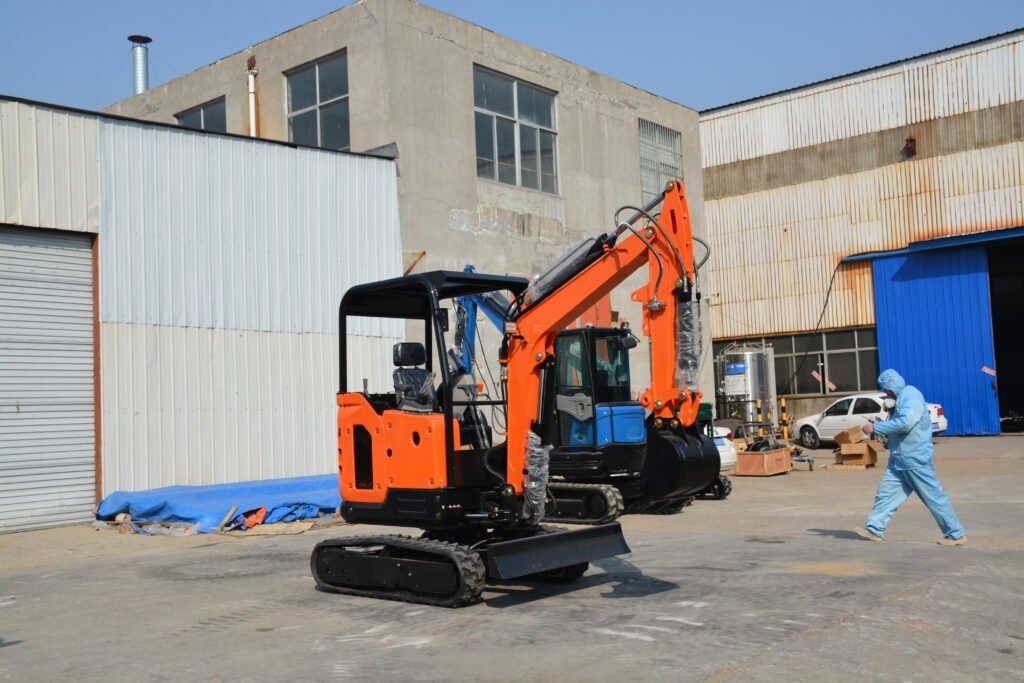
1. Understanding China’s Mini Excavator Manufacturing Landscape
China’s role as a global manufacturing hub is no longer defined merely by low costs. Over the last decade, the construction equipment industry in China has undergone rapid professionalisation. Advances in hydraulic systems, engine efficiency, and precision welding have allowed domestic brands to compete with traditional industry leaders.
In the field of mini excavators, Chinese manufacturers now account for more than 60% of the global export volume, according to recent trade reports. This shift reflects not only the sheer scale of China’s production capacity, but also the growing trust of international buyers who recognise improvements in quality control and engineering reliability.
However, the diversity of manufacturers also introduces complexity. Some factories are highly specialised, with advanced R&D teams and mature export departments. Others are smaller workshops focused purely on domestic sales, sometimes lacking the necessary certification or experience for overseas markets.
For an international dealer, distinguishing between these two ends of the spectrum is essential.
2. Key Dimensions to Evaluate a Chinese Mini Excavator Manufacturer
When evaluating potential suppliers, dealers should look beyond the initial price quotation or glossy brochure. The following five dimensions offer a structured way to assess long-term partnership potential.
Dimension 1: Product Quality and Engineering Reliability
Quality is the foundation of every sustainable business relationship. A dealer’s reputation in their local market depends on the reliability of the machines they sell.
When assessing quality, focus on these practical aspects:
·Structural Components: Examine the steel quality, welding precision, and surface treatment. Premium factories often use laser cutting and robotic welding systems for consistency.
·Hydraulic System: Reliable brands source hydraulic components from reputable suppliers such as Eaton, KYB, or Nachi.
·Testing and Inspection: A trustworthy manufacturer will perform load testing, leak detection, and endurance trials for each batch.
Brands like Nicosail have built their reputation through consistent engineering quality and rigorous testing protocols. Dealers often highlight that this consistency reduces warranty claims and boosts end-user satisfaction — key factors for repeat business.
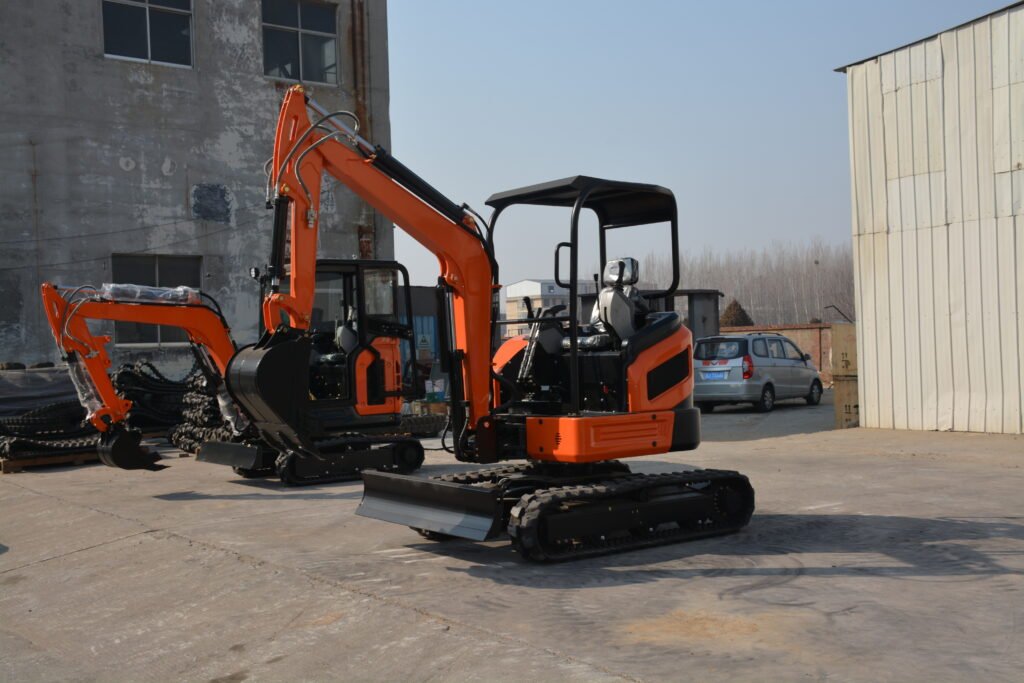
Dimension 2: Certification, Compliance, and Documentation
Exporting to Europe, North America, or Australia requires adherence to regional safety and environmental standards. Certifications such as CE, EPA, or ISO 9001 are not just formalities; they demonstrate a manufacturer’s readiness for global markets.
Dealers should request to review original certificates and verify that each model has been tested under the relevant standards. Also, check the traceability of parts and serial numbers — legitimate manufacturers maintain documentation for each unit shipped.
A company that invests in compliance is one that understands the long-term nature of international cooperation.
Dimension 3: Manufacturing Capacity and Experience
A key question for every dealer is not only “Can they produce a good excavator?” but “Can they do it consistently — and at scale?”
Capacity encompasses both production volume and operational stability. For example, a factory that produces 300–500 units per month with a structured supply chain is generally more reliable than one that builds on demand.
Export experience also matters. Manufacturers familiar with international trade documentation, packing standards, and shipping regulations can save dealers significant time and potential customs issues.
Nicosail, for instance, operates with a well-established export process and multilingual support team, ensuring efficient communication and logistics management for partners across Europe and North America.
Dimension 4: Customisation and Flexibility
Dealers in different regions face varying customer preferences — from colour schemes to control layouts, from attachments to branding options. Manufacturers that provide flexible customisation can help dealers differentiate themselves in their markets.
Some examples include:
·Optional joystick or pedal configurations;
·Colour and logo customisation for branding;
·Attachments such as augers, rakes, or thumbs tailored for regional use.
·Flexibility is not only about product design; it also reflects a manufacturer’s willingness to listen, adapt, and collaborate.
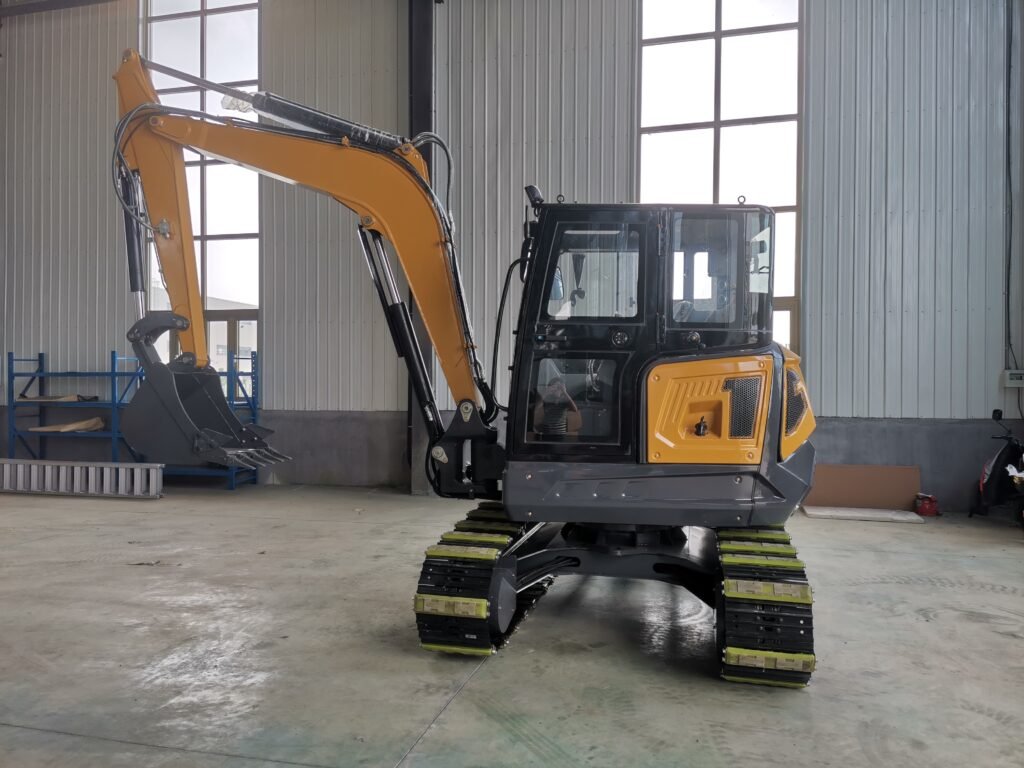
Dimension 5: Service, Spare Parts, and After-Sales Support
After-sales service remains one of the most underestimated factors in B2B cooperation. Even the best-built machines require maintenance, and downtime can erode a dealer’s reputation quickly.
A reliable manufacturer provides:
·Spare parts stock for at least 3–5 years after model release;
·Quick-response communication channels for troubleshooting;
·Detailed maintenance manuals and technical documentation in English or other major languages.
·Dealers working with Nicosail often cite the company’s responsive after-sales service as a reason for long-term cooperation. The company maintains an organised spare parts inventory and prioritises rapid response to support partners in minimising downtime.
3. Common Pitfalls Dealers Should Avoid
While opportunities abound, there are also risks that inexperienced dealers may overlook. Below are some common mistakes and how to avoid them.
- Choosing purely based on price: The cheapest offer often hides compromises in materials, quality control, or after-sales service. A price that seems “too good to be true” usually is.
- Skipping factory audits: Virtual tours and videos can be misleading. Whenever possible, arrange an independent inspection or visit the facility personally.
- Ignoring communication quality: How a company communicates reflects its professionalism. Consistent, clear, and prompt responses are a sign of an organised team.
- Overlooking contract details: Ensure every specification — from paint colour to hydraulic brand — is written in the purchase agreement.
- Neglecting long-term cooperation terms: Consider service agreements, spare parts pricing, and warranty handling before committing to large orders.
By avoiding these pitfalls, dealers not only protect their business interests but also lay the foundation for a smoother and more transparent partnership.
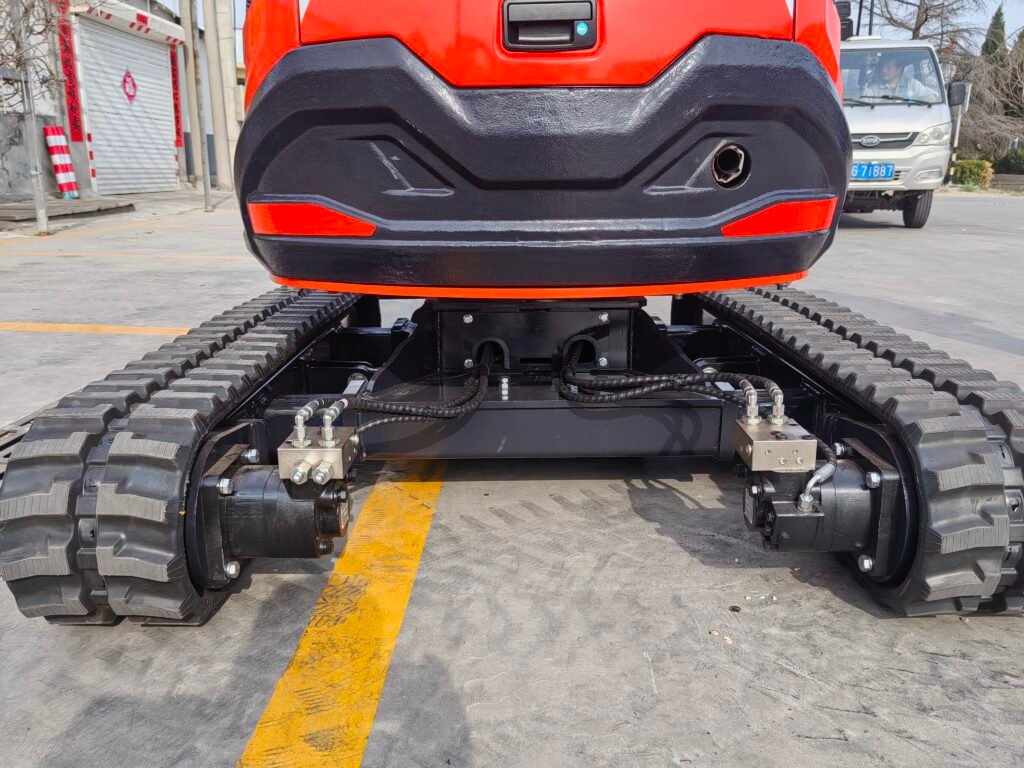
4. The Value of Partnership: Moving Beyond Transactions
The most successful collaborations between dealers and Chinese manufacturers are those built on mutual trust and shared growth, rather than one-time transactions.
A true partnership involves open dialogue, technical cooperation, and market feedback exchange. Dealers who actively share end-user experiences help manufacturers improve design and reliability — in return, they often gain priority access to new models and marketing resources.
In recent years, forward-looking Chinese manufacturers like Nicosail have embraced this partnership-oriented approach. Instead of competing solely on cost, they prioritise consistent product improvement, international service readiness, and co-development with overseas dealers.
This shift marks an evolution in the global machinery industry — from a buyer-seller model to a collaborative ecosystem that benefits both sides.
5. Global Mindset: Building Bridges, Not Borders
As global trade becomes increasingly interconnected, the role of mini excavator dealers is also changing. Today’s dealers are not just distributors; they are market educators, providing customers with knowledge, training, and trust.
Chinese manufacturers who understand this dynamic are positioning themselves as long-term allies to global partners. Through continuous innovation, transparent communication, and cultural understanding, they aim to create win–win relationships that transcend borders.
Companies like Nicosail, which exports to over 40 countries across Europe, North America, South America, and Oceania, exemplify this global mindset. By maintaining strong logistics partnerships and multilingual support teams, they ensure seamless cooperation from production to delivery.
For dealers, such a mindset is crucial — because global success depends on partnerships built not only on contracts, but also on shared vision.
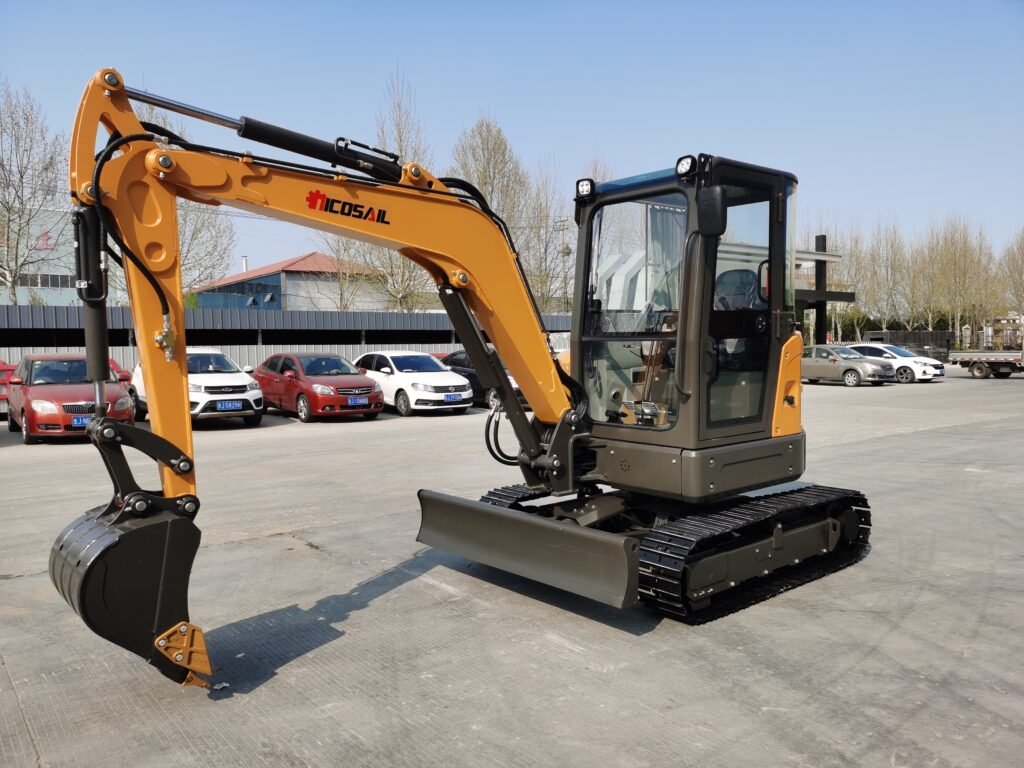
Conclusion: Choose Partnerships, Not Just Products
Selecting a Chinese mini excavator manufacturer is far more than a sourcing decision — it’s an investment in your reputation, your business continuity, and your customer satisfaction.
By evaluating suppliers through the lenses of quality, compliance, capacity, flexibility, and service, dealers can identify partners who will stand beside them as they grow their market presence.
In the rapidly evolving world of construction machinery, sustainable growth will belong to those who build partnerships based on reliability, transparency, and shared ambition.
About Nicosail
Founded with a mission to make compact construction machinery more accessible worldwide, Nicosail Machinery has developed into a trusted name among global dealers seeking reliable mini excavator solutions. The company combines advanced engineering with a partnership-driven philosophy — focusing not only on production quality, but also on mutual success with distributors.
With a global footprint spanning Europe, North America, and other emerging markets, Nicosail provides customisable machinery, responsive service, and long-term technical support to help dealers thrive in their local markets.
Interested in exploring partnership opportunities?
Nicosail welcomes professional dealers and distributors to connect, exchange insights, and grow together in the expanding mini excavator market.

